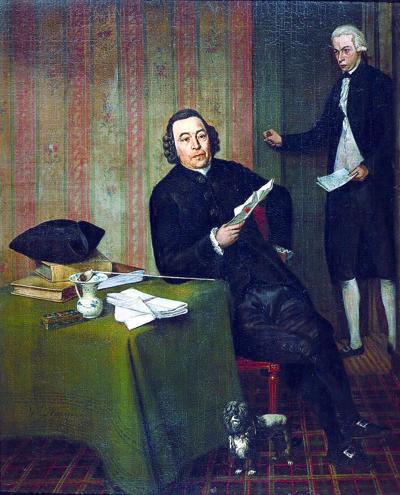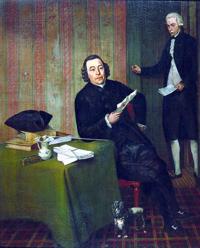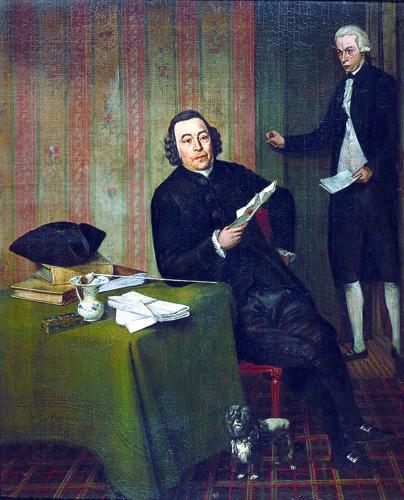Local History Talk on Colonial New York Censuses at Hudson Area Library
HUDSON — The Hudson Area Library History Room, in collaboration with the Leisler Institute for the Study of Early New York History, presents the latest in its Local History Speaker series: Colonial New York Censuses: the several places where the inhabitants were dwelling by David Voorhees, Thursday, January 9, 6-7:30 p.m. Since ancient times, societies have kept counts of their population for various purposes. Dr. Voorhees will present on when, how and why population surveys took place in colonial New Netherland and New York, with a specific focus on Claverack Landing, as Hudson was called before it was named Hudson. A question and answer period and refreshments will follow the talk. For more information, email programs@hudsonarealibrary.org, call 518-828-1792 x101, or visit the main desk in the library.
The lecture is a precursor to the History of the Census in Hudson exhibition which will open at the library on February 6. The exhibit examines the United States federal censuses that have been taken since 1790, the New York State censuses taken since 1825, colonial censuses that precede the American revolution, and the upcoming 2020 federal census. The exhibit also includes historic information and artifacts specific to the City of Hudson, and will illustrate why census information is an important tool for cities like Hudson and their citizens.
Dr. Voorhees is director of the Jacob Leisler Papers Project, formerly located at New York University, as well as the Jacob Leisler Institute headquartered in Hudson. He’s also managing editor of de Halve Maen (The Half Moon), a quarterly scholarly journal published by The Holland Society of New York. An NYU research scientist, he is a former managing reference history editor at Charles Scribner’s Sons and has published numerous historical works and articles, and been a consultant on historical exhibits at the Museum of the City of New York and the Bard Graduate Center in Manhattan among others.
The Jacob Leisler Institute for the Study of Early New York History is an independent, not-for-profit study and research center devoted to collecting, preserving, and disseminating information relating to colonial New York under English rule. In the years spanning 1664 to 1773, New York province’s diverse European settlements and Native American and African populations fused into a cosmopolitan colonial territory with ties throughout the Atlantic World. The Institute is unique in focusing on this under examined 109-year period in American history.
The Institute contains a collection of original, digital, and/or paper copies of primary source manuscripts, books, maps, and illustrative materials, as well as a library of secondary resources that provide scholarly context to the primary sources. The Jacob Leisler Institute is an open resource for both scholars and the interested public.
The Hudson Area Library History Room houses a special collection that pertains to the history of the City of Hudson, Greenport and Stockport; as well as Columbia County and New York State. The History Room also hosts the Local History Speaker Series at the library, offering free monthly talks on diverse topics related to the history of Hudson, Greenport, Stockport, and Columbia County.
The History Room hours are Tuesdays 4 - 6pm and Saturdays 10am - 12pm, during which people visit and browse the extensive collection of city directories, yearbooks and local history books; and research items in the archival collection. The public can also request information on local history that volunteers will research. Appointments are available upon request. For more information email reference@hudsonarealibrary.org, call 518-828-1792 x100, or visit the main desk in the library.
The Hudson Area Library is located at 51 North Fifth Street in Hudson, NY. The mission of the library is to enrich the quality of life by providing free and equal access to programs, services and resources, and by creating opportunities for all members of our community to connect, create, learn and grow.










